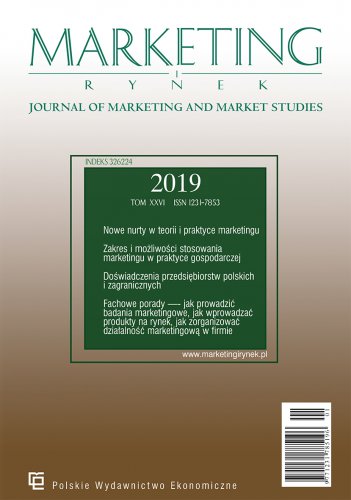The concept of the business model of football clubs on the example of Legia Warsaw
Business model is a concept that has been used in the sciences for about 20 years. In general, a business model can be regarded as a certain (more or less detailed) description or characterization of a business idea. The main objective of this paper is to develop a concept and evaluate the possibility of using the Osterwalder and Pigneur business model to describe how a football club operates, using the example of Legia Warszawa (hereinafter: Warsaw). The key elements of the business model in the reality of Legia Warsaw's operation were described, which resulted in a graphical representation of the Canvas Model.
References
Amit, R., & Zott, Ch. (2001). Value creation in e-business. Strategic Management Journal, 22.
Chesbrough, H., & Rosenbloom, R. S. (2002). The role of business model in capturing value from innovation: Evidence from Xerox Corporation's technology spin-off companies. Industrial and Corporate Change, 11(3), 529–555. https://doi.org/10.1093/icc/11.3.529
Cyfert, S., & Janicki, M. (2016). Modele biznesowe klubów piłkarskich – próba typologizacji. Przedsiębiorstwo we Współczesnej Gospodarce – Teoria i Praktyka, (4).
Dahan, N. M., Doh, J. P., Oetzel, J., & Yaziji, M. (2010). Corporate-NGO collaboration: Co-creating new business models for developing markets. Long
Range Planning, 43(2–3). https://doi.org/10.1016/j.lrp.2009.11.003
Legia Warszawa. (2022). Raport finansowy 2020–2021. https://pliki.legia.pl/Raport_finansowy_2020-2021.pdf
Finnie, W. C. (2000). Leading the revolution: An interview with Gary Hamel. Strategy & Leadership, 29, 4–10. https://doi.org/10.1108/10878570110367141
Gołębiowski, T., Dudzik, T. M., Lewandowska, M., & Witek-Hajduk, M. (2008). Modele biznesu polskich przedsiębiorstw. Oficyna Wydawnicza Szkoły Głównej Handlowej.
Koźmiński, A. K. (2008). Zarządzanie w warunkach niepewności. Wydawnictwo Naukowe PWN.
Magretta, J. (2002). Why business models matter? Harvard Business Review, 80(5), 86–92.
Mangematin, V., Lemarie, S., Boissin, J. P., Catherine, D., Corolleur, E., Coronini, R., & Trommetter, M. (2003). Development of SMEs and heterogeneity of trajectories: The case of biotechnology in France, Research Policy, 32(4), 621–638. https://doi.org/10.1016/s0048-7333(02)00045-8
Morris, M., Schindehutte, M., & Allen, J. (2005). The entrepreneur's business model: Toward a unified perspective. Journal of Business Research, 58(6), 726–735. https://doi.org/10.1016/j.jbusres.2003.11.001
Obłój, K. (2002). Tworzywa skutecznych strategii. PWE.
Osterwalder, A., & Pigneur, Y. (2010). Business model generation. John Willey and Sons.
Osterwalder, A., Pigneur, Y., & Tucci C. L. (2005). Clarifying business models: Origins, present, and future of the concept. Communications of the Association for Information Systems, 15, 1–25. https://doi.org/10.17705/1cais.01601
Rappa, M. A. (2004). The utility business model and the future of computing services. IBM Systems Journal, 43, 32–42. https://doi.org/10.1147/sj.431.0032
Richardson, J. (2008). The business model: An integrative framework for strategy execution. Strategic Change, 17(5–6), 133–144. https://doi.org/10.1002/jsc.821
Smith, W. K., Binns, A., & Tushman M. L. (2010). Complex business models: Managing strategic paradoxes simultaneously. Long Range Planning. 43(2–3), 448–461. https://doi.org/10.1016/j.lrp.2009.12.003
Teece, D. J. (2010). Business models, business strategy and innovation. Long Range Planning, 43, 172–194. https://doi.org/10.1016/j.lrp.2009.07.003
Timmers, P. (1998). Business models for electronic markets. Electronic Markets, 8(2), 3–8. https://doi.org/10.1080/10196789800000016
Zott, Ch., Amit, R., & Massa, L. (2011). The business model: Recent developments and future research, Journal of Management, 37(4). https://doi.org/10.1177/0149206311406265

